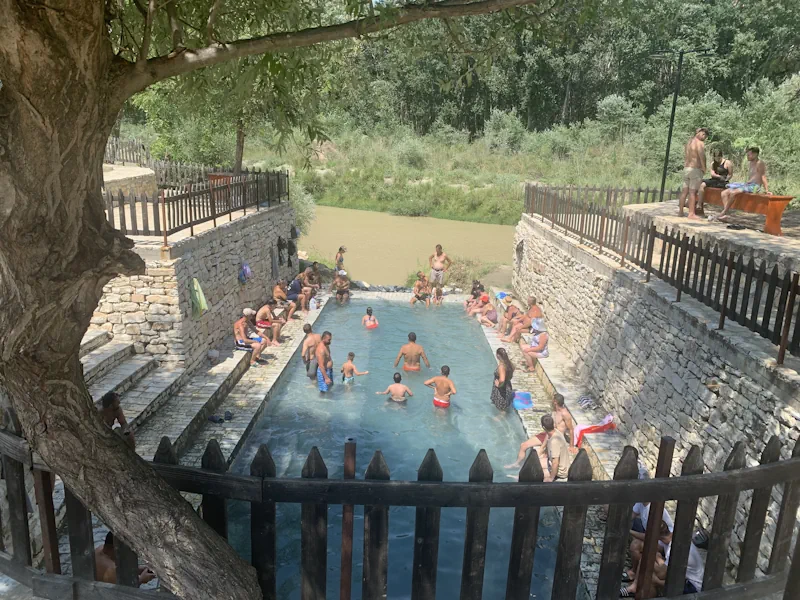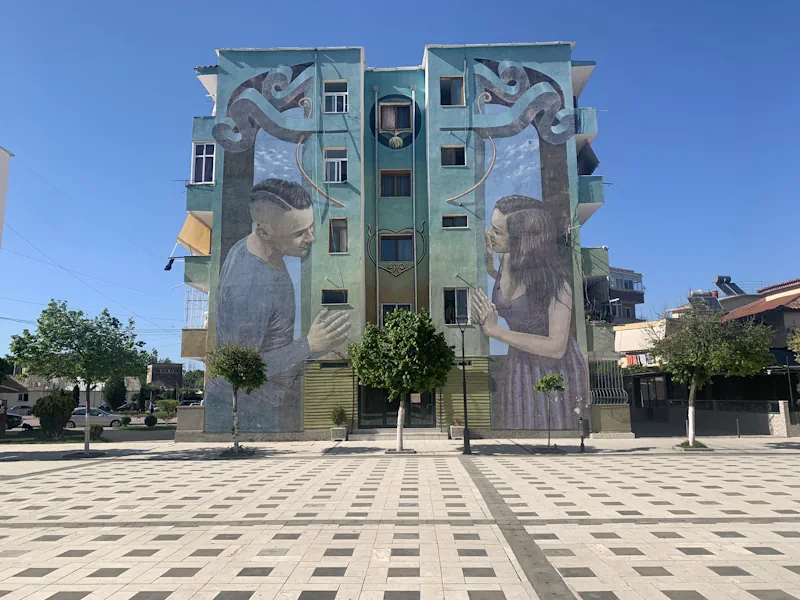Set on a hill 450 meters above sea level near the modern city bearing the same name, the ancient city of Dimale was an important center of the Illyrian tribe of the Parthini, who considered it impregnable. Dimale was the site of several historical conflicts in antiquity, including the Second Roman-Illyrian War and the First Roman-Macedonian War. Like many other settlements of the Parthini, Dimale is believed to have been destroyed during the Civil War between Julius Caesar and Pompey, much of which took place in the territories of present-day Albania. Archaeological excavations at this site have unearthed a wealth of artifacts, among which the most significant are the head of a young boy and a fragment of a sundial. The head of the boy, a piece of art crafted from local stone, is thought to represent a champion of an Olympic game. To honor this find, a full reconstructed statue of this boy has been erected in the center of the modern city of Dimal. Another significant discovery is the fragment of a sundial. This sundial, composed of twelve parts and a gnomon, used the shadow to determine time and represents the first sundial discovered in Albania. Although still not fully explored by archaeological research, ancient Dimale remains one of the most interesting sites in the modern city, offering a valuable window into the ancient history of this area.
Welcome to Dimal!
Focus
The Baths of Dimali, known since the 9th century for their healing properties, have attracted numerous visitors over the years. The cold water, rich in sulfur, helps improve skin health and alleviate rheumatic pains. Recently, to give these springs the attention they deserve and to make Dimali a renowned destination for natural healing, infrastructure is being improved and new baths are being constructed.
Focus

Throughout the month of August, the evenings in Dimal come alive with the sounds of Ura Summer Fest. Artists from various musical genres bring special programs every night, spreading a joyful atmosphere in the city that lasts the entire month.
Focus

Just like in the entire Berat region, in Dimal, the production of wine and rakia is an integral part of the tradition. White wine, red wine, and grape rakia, with or without added flavors, are present at every table and social event, representing an essential part of the hospitality of the residents of Dimal.
Dimal area is known for its tangerines. Recently, during their harvesting season, a traditional festival with folk music and dancing has begun to be held to promote the product and local folklore.
Focus

